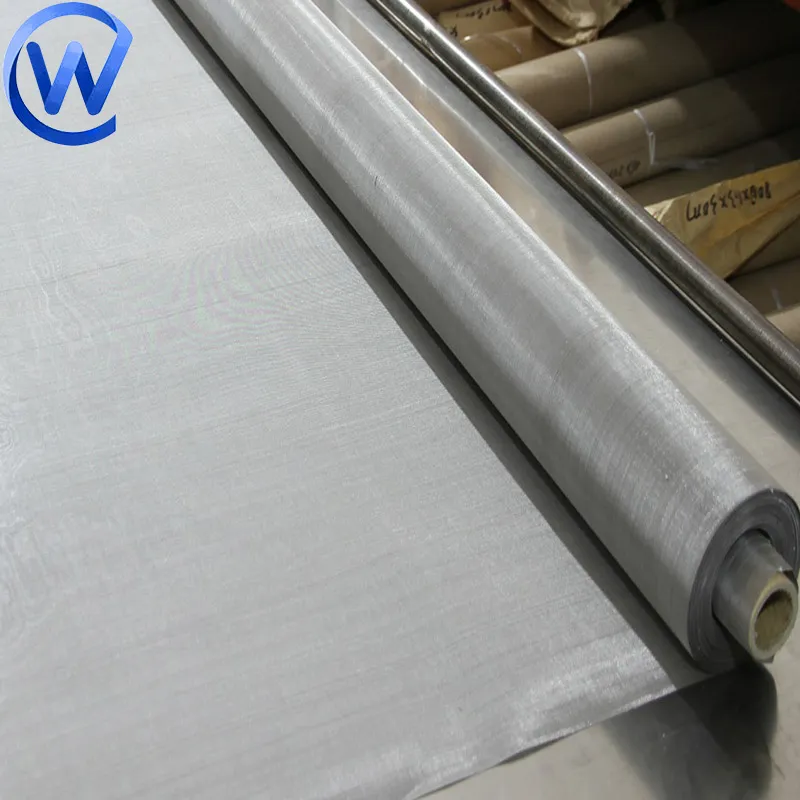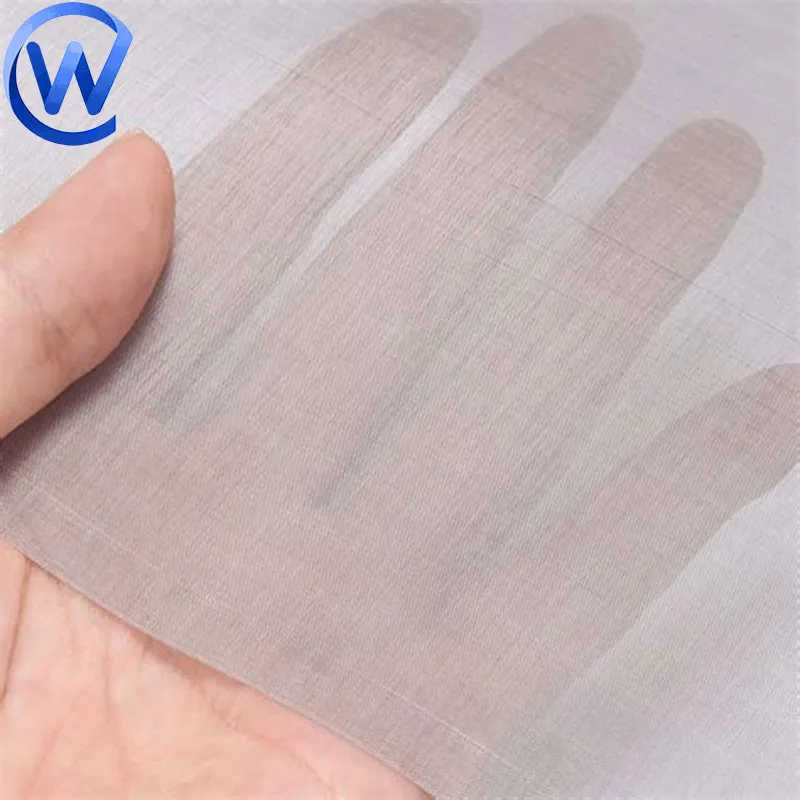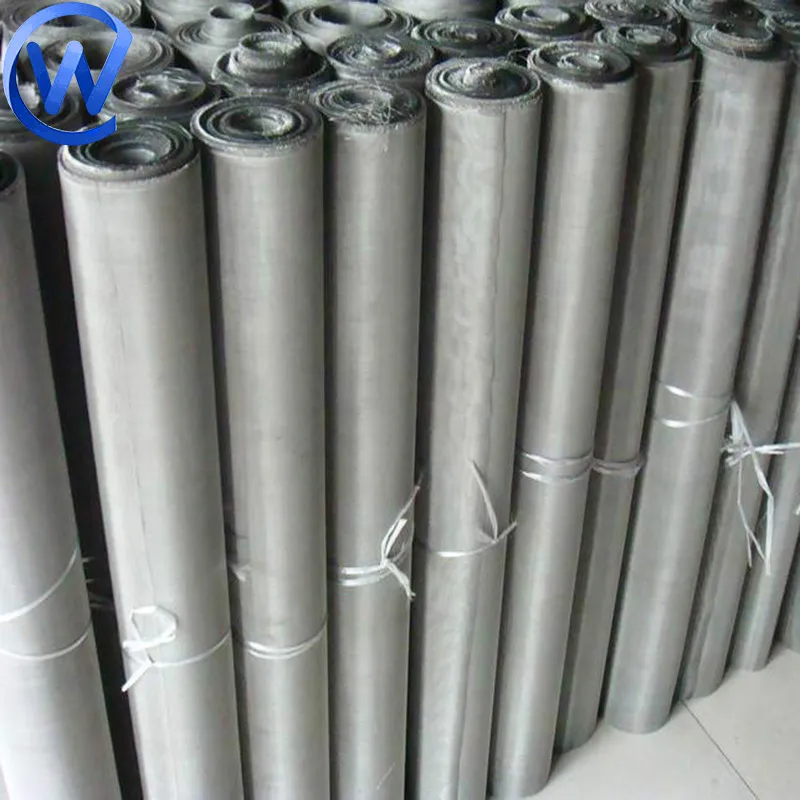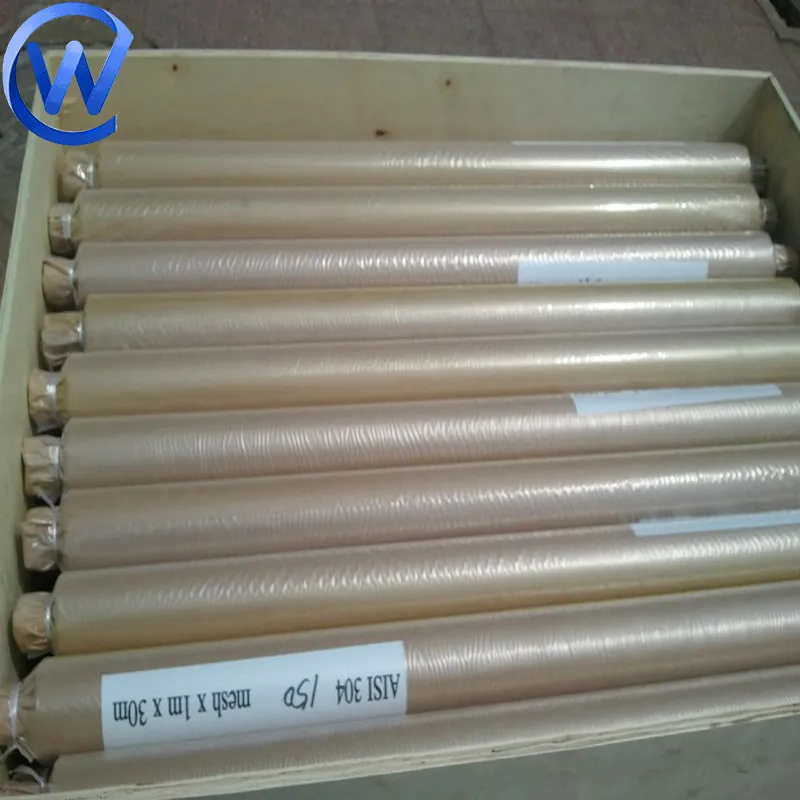-
+86 15030157877
-
sales@galvanizedmetalmesh.com
ส.ค. . 26, 2025 02:00 Back to list
Stainless Steel Wire Mesh: Durable & Corrosion-Resistant Rolls
Introduction to Stainless Steel Wire Mesh
In diverse industrial sectors, the demand for materials offering superior corrosion resistance, high temperature stability, and robust mechanical properties is paramount. Among these, stainless steel wire mesh stands out as a critical component, engineered to meet the stringent requirements of filtration, separation, screening, and reinforcement applications. This versatile material, primarily manufactured from various grades of stainless steel such as 304, 304L, 316, and 316L, offers an unparalleled combination of durability and performance, making it indispensable across a spectrum of B2B operations from petrochemical processing to advanced architectural design. Its inherent resistance to oxidation and hostile chemical environments ensures extended service life and reduced maintenance, translating into significant operational cost efficiencies for enterprises globally.
This comprehensive overview delves into the intricate aspects of this essential product, covering its manufacturing process, technical specifications, diverse application scenarios, and key advantages. We will also explore industry trends, provide valuable insights for vendor comparison, discuss tailored customization options, and present real-world application case studies, all designed to equip B2B decision-makers with the knowledge to optimize their material selection and procurement strategies.
Detailed Manufacturing Process Flow of Stainless Steel Wire Mesh
The production of stainless steel wire mesh is a sophisticated multi-stage process, beginning with the selection of high-quality stainless steel alloys and culminating in a precisely engineered mesh product. Understanding this flow is crucial for appreciating the quality and performance attributes of the final product.
1. Material Selection and Preparation
- Alloy Sourcing: High-grade stainless steel coils (e.g., AISI 304, 316, 316L) are sourced from reputable mills. These alloys are chosen for specific properties such as corrosion resistance (316/316L for chlorides), heat resistance, and mechanical strength.
- Wire Drawing: The raw steel rods undergo a series of cold drawing operations to achieve the desired wire diameter. This process significantly enhances the wire's tensile strength and surface finish. Annealing may be performed between drawing stages to restore ductility.
2. Mesh Weaving or Welding
- Weaving: For woven mesh, sophisticated weaving looms interlace warp (longitudinal) and weft (transverse) wires. Common weave patterns include plain weave, twilled weave, Dutch weave (plain Dutch, twilled Dutch), and crimped weave. Each pattern imparts distinct characteristics to the mesh, influencing its pore size, flow rate, and mechanical strength.
- Welding: For welded mesh, precisely cut wires are arranged into a grid pattern and then resistance-welded at each intersection point. This creates a very strong, rigid mesh with consistent apertures, ideal for structural applications or where precise opening sizes are critical.
3. Post-Processing and Finishing
- Cleaning and Degreasing: The mesh undergoes thorough cleaning to remove any lubricants, oils, or residues from the manufacturing process.
- Passivation (Optional but Recommended): This chemical treatment removes free iron from the surface, enhancing the inherent corrosion resistance of the stainless steel by forming a passive chromium oxide layer. This is crucial for applications in harsh environments.
- Slitting and Cutting: The large rolls or sheets of stainless steel wire mesh are precisely cut or slit into specified dimensions according to customer requirements.
- Edge Treatment (Optional): Edges can be trimmed, folded, or fitted with frames for specific applications.
4. Quality Control and Testing Standards
Throughout the process, rigorous quality control measures are implemented to ensure adherence to international standards such as ISO 9001 for quality management systems and ASTM E2814/E2016 for mesh specifications. Key parameters tested include wire diameter, mesh count (number of openings per linear inch), aperture size, tensile strength, elongation, and surface finish. Testing standards also encompass material composition verification (e.g., spectrographic analysis) and corrosion resistance tests where applicable. This commitment to quality ensures a service life often extending decades under appropriate operating conditions.

Target Industries and Advantages:
Stainless steel wire mesh is a staple in industries requiring robust filtration and separation. Target industries include:
- Petrochemical: For catalyst support, fluid bed systems, and particulate filtration. Advantages include superior corrosion resistance to acids and hydrocarbons, ensuring process efficiency and safety.
- Metallurgy: In high-temperature furnace screens and sieving applications. Its heat resistance prevents deformation and maintains structural integrity.
- Water Supply & Drainage: As filter elements for municipal water treatment, well screens, and wastewater management. Exceptional corrosion resistance extends maintenance cycles and ensures consistent water quality.
- Food & Beverage: For sieving, straining, and conveyor belts. Non-contaminating, easy to clean, and resistant to food acids and sanitizers, meeting FDA compliance.
- Pharmaceuticals: In precise filtration and drying processes, where purity and inertness are paramount.
In these scenarios, the inherent corrosion resistance of stainless steel, particularly grades like 316L, leads to significant energy savings by maintaining optimal flow rates in filtration systems and reducing the need for frequent equipment replacement or cleaning.
Industry Trends and Market Dynamics
The market for stainless steel wire mesh is dynamic, driven by increasing industrialization, stringent environmental regulations, and advancements in material science. Key trends include:
- Demand for Finer Filtration: Growth in sectors like pharmaceuticals, microelectronics, and advanced manufacturing is pushing demand for mesh with increasingly precise and finer apertures, often in the micron range, requiring advanced weaving technologies and quality control.
- Sustainable Manufacturing: There's a growing emphasis on environmentally friendly production processes, including reduced energy consumption during wire drawing and weaving, and efficient waste management. The recyclability of stainless steel aligns perfectly with this trend.
- Advanced Alloys: While 304 and 316 remain standard, there's increasing interest in specialized stainless steel alloys (e.g., Duplex stainless steels, super-austenitic steels) for extreme applications involving aggressive chemicals, very high temperatures, or unique mechanical property requirements.
- Automation and AI in Production: Leading stainless steel wire mesh manufacturers are investing in automation for weaving and welding processes to enhance precision, reduce labor costs, and improve consistency, particularly for large-scale `wholesale stainless steel wire mesh` orders.
- Global Supply Chain Diversification: Geopolitical factors and a desire for supply chain resilience are leading companies to explore a broader range of `stainless steel wire mesh suppliers` and `stainless steel wire mesh exporters` across different regions.
These trends highlight a market that is continuously evolving, demanding greater precision, higher performance, and more sustainable solutions from `stainless steel wire mesh factories` and `stainless steel wire mesh manufacturers`.
Technical Specifications and Parameters
Selecting the appropriate stainless steel wire mesh requires a thorough understanding of its technical specifications. Key parameters define the mesh's physical properties and suitability for specific applications.
Key Parameters:
- Mesh Count (LPI): The number of openings per linear inch, indicating the fineness of the mesh. Higher mesh count means finer filtration.
- Wire Diameter (Gauge): The thickness of the individual wires, measured in millimeters or inches. Affects mesh strength and open area.
- Aperture Size (Opening Size): The clear opening between adjacent wires, often expressed in microns (µm) or millimeters. Directly relates to the particle size that can pass through.
- Open Area (%): The percentage of total mesh area that is open space. Higher open area allows for greater flow rate but may reduce strength.
- Weave Type: Plain, Twilled, Plain Dutch, Twilled Dutch, Crimped. Each weave offers distinct characteristics in terms of strength, stability, and filtration precision.
- Material Grade: 304, 304L, 316, 316L, and other specialized stainless steel alloys, each with specific chemical compositions and properties.
Typical Product Specification Table:
| Parameter | Standard (Plain Weave) | Fine Filtration (Plain Dutch Weave) | Heavy Duty (Welded Mesh) |
|---|---|---|---|
| Material Grade | SS 304 | SS 316L | SS 316 |
| Mesh Count (LPI) | 30 x 30 | 200 x 1400 | 2 x 2 |
| Wire Diameter (mm) | 0.30 | Warp: 0.035, Weft: 0.030 | 1.6 |
| Aperture Size (µm / mm) | 540 µm | 15 µm nominal | 11.1 mm |
| Open Area (%) | 38% | ~15% (for strength) | 77% |
| Weave Type | Plain Weave | Plain Dutch Weave | Welded Square Mesh |

Application Scenarios and Technical Advantages
The versatility of stainless steel wire mesh makes it suitable for an extensive range of applications, each leveraging its unique technical advantages.
Common Application Scenarios:
- Filtration and Separation: Used in industrial filters, strainers, sieves, and screens for liquids, gases, and solids across chemical processing, oil & gas, mining, and water treatment.
- Catalyst Support: In petrochemical reactors, stainless steel wire mesh roll provides stable support for catalyst beds, ensuring uniform flow distribution and optimal reaction conditions.
- Architectural and Decorative: Modern architectural designs often incorporate `stainless steel wire mesh roll` for aesthetic facades, balustrades, sunscreens, and interior partitions due to its sleek appearance and durability.
- Security and Safety: Fabricated into security screens, anti-vandalism panels, and animal enclosures due to its strength and resistance to cutting and corrosion.
- Food Processing: Conveyor belts, drying racks, and insect screens in hygienic environments.
- EMI/RFI Shielding: Fine mesh acts as an effective barrier against electromagnetic and radio-frequency interference in electronic enclosures.
Technical Advantages:
- Corrosion Resistance: High chromium content forms a passive layer, offering excellent resistance to oxidation, rust, and various chemical aggressors, especially with 316L in chloride environments.
- High Temperature Resistance: Maintains mechanical strength and structural integrity in elevated temperature environments, crucial for furnace components and exhaust systems.
- Mechanical Strength & Durability: Offers high tensile strength and resistance to wear, abrasion, and impact, ensuring long service life even under demanding conditions.
- Ease of Cleaning & Hygiene: Smooth, non-porous surface prevents bacterial growth and is easy to clean, making it ideal for food, pharmaceutical, and medical applications.
- Precision & Consistency: Advanced weaving and welding techniques ensure precise and consistent aperture sizes, vital for accurate filtration and screening.
- Formability & Weldability: Can be easily cut, formed, and welded into complex shapes without compromising its integrity or properties.

Vendor Comparison and Customized Solutions
Selecting the right `stainless steel wire mesh supplier` is crucial for project success. A robust vendor comparison framework should consider several key factors beyond just price.
Key Criteria for Vendor Comparison:
| Criterion | Description | Why it Matters |
|---|---|---|
| Quality Certifications | ISO 9001, ASTM, CE, FDA compliance where applicable. | Ensures consistent product quality and adherence to international standards. |
| Manufacturing Capability | Ability to produce a wide range of mesh types, materials, and custom dimensions. | Flexibility for unique project requirements and scalability for bulk orders. |
| Technical Expertise | Experienced engineers for design, material selection, and application support. | Provides valuable consultation, problem-solving, and optimal product recommendations. |
| Lead Time & Logistics | Reliable production schedules and efficient global shipping for `stainless steel wire mesh exporters`. | Minimizes project delays and ensures timely delivery, crucial for complex supply chains. |
| After-Sales Support | Warranty, technical assistance, and responsive customer service. | Builds long-term trust and ensures continued operational efficiency. |
Customized Solutions: Tailoring Stainless Steel Wire Mesh to Specific Needs
The ability of a `stainless steel wire mesh manufacturer` to provide customized solutions is a significant differentiator. Tailored specifications ensure optimal performance and cost-effectiveness for specialized applications. Customization options include:
- Specific Alloy Grades: Beyond standard 304/316, custom orders for Duplex, Super Duplex, or other high-performance alloys.
- Unique Mesh Configurations: Custom mesh counts, wire diameters, or specialized weave patterns to achieve precise filtration or flow characteristics.
- Fabrication and Finishing: Mesh can be supplied as rolls, sheets, or pre-fabricated components such as filter discs, cylinders, baskets, or complex shapes with specific edge treatments (e.g., welded frames, folded edges).
- Surface Treatments: Additional treatments like electropolishing for ultra-smooth, crevice-free surfaces (e.g., for medical implants) or specialized coatings for enhanced properties.
- Dimensions: Non-standard widths and lengths for `stainless steel wire mesh roll` or custom cut-to-size sheets to minimize waste and reduce fabrication time at the client's end.
Engaging with a `stainless steel wire mesh factory` that possesses strong engineering capabilities allows for co-creation of solutions perfectly matched to the operational demands and environmental conditions of the end-use application.

Application Case Studies & Customer Experience
Real-world applications showcase the tangible benefits and reliability of `wholesale stainless steel wire mesh` in demanding industrial environments. These case studies highlight the `experience` and `authoritativeness` that leading `stainless steel wire mesh suppliers` bring to their clients.
Case Study 1: Petrochemical Filtration Upgrade
- Client: A major petrochemical refinery in the Middle East.
- Challenge: Existing carbon steel filter screens in a desulfurization unit were experiencing rapid corrosion due to H2S and chlorides, leading to frequent replacements, significant downtime, and high maintenance costs.
- Solution: Replaced the old screens with custom-fabricated SS 316L woven mesh filters (100 mesh, plain weave, 0.10mm wire diameter), chosen for its superior resistance to chloride-induced pitting and crevice corrosion.
- Outcome & Feedback: The new `stainless steel wire mesh` filters demonstrated a 5x increase in service life, reducing unscheduled shutdowns by 70%. The client reported an estimated annual saving of over $250,000 in maintenance and replacement costs, praising the durability and performance under extreme conditions.
Case Study 2: Municipal Water Treatment Plant Expansion
- Client: A large municipal water treatment authority expanding its filtration capacity.
- Challenge: Needed reliable, long-lasting filter media for pre-filtration stages to remove suspended solids from raw river water, resistant to biofouling and varying pH levels.
- Solution: Supplied large quantities of 20 mesh SS 304 `stainless steel wire mesh roll` for custom filter baskets and drum screens. The open area was optimized for flow rate while maintaining effective particle capture.
- Outcome & Feedback: The SS 304 mesh performed exceptionally well, showing minimal degradation after two years of continuous operation. The ease of backwashing and resistance to algae growth significantly improved operational efficiency. The authority highlighted the mesh's consistent quality, critical for maintaining water purity standards, and the responsive support from the `stainless steel wire mesh exporter`.
Trustworthiness: FAQ, Lead Times, Warranty, and Support
Building `trustworthiness` is paramount in B2B relationships. Our commitment is reflected in transparent policies regarding product quality, delivery, and post-sales support.
Frequently Asked Questions (FAQ):
-
Q: What is the primary difference between SS 304 and SS 316 wire mesh?
A: SS 316 contains molybdenum, which provides superior corrosion resistance, especially against chlorides and industrial solvents, making it ideal for marine and chemical processing environments. SS 304 is a general-purpose grade suitable for most atmospheric and freshwater applications.
-
Q: Can your `stainless steel wire mesh factory` supply custom mesh sizes and shapes?
A: Yes, we specialize in customized solutions. We can produce mesh with specific alloy grades, mesh counts, wire diameters, and can fabricate it into various shapes, including discs, cylinders, or frames, according to your technical drawings.
-
Q: What is the typical lead time for a standard `stainless steel wire mesh roll` order?
A: For standard inventory items, lead time is typically 3-5 business days. For custom or large `wholesale stainless steel wire mesh` orders, it can range from 2-4 weeks, depending on complexity and quantity. We always provide an estimated delivery schedule upon order confirmation.
-
Q: Is your `stainless steel wire mesh` compliant with international standards?
A: Absolutely. All our products adhere to stringent international quality standards such as ISO 9001 and relevant ASTM specifications. Material test certificates are available upon request.
Lead Time & Fulfillment:
We understand the critical nature of timely delivery in B2B operations. Our streamlined production and logistics processes are designed for efficiency.
- Standard Orders: Typically shipped within 3-5 business days for stock items.
- Custom & Large Volume Orders: Detailed lead times are provided with each quotation, usually ranging from 2-4 weeks depending on the complexity of fabrication and material availability.
- Expedited Shipping: Available upon request for urgent requirements, with associated costs.
- Global Logistics: As experienced `stainless steel wire mesh exporters`, we manage all aspects of international shipping, including documentation and customs clearance, to ensure smooth delivery worldwide.
Warranty Commitments:
We stand by the quality of our stainless steel wire mesh products.
- All products are guaranteed to be free from manufacturing defects for a period of 12 months from the date of purchase.
- Our warranty covers material flaws and workmanship issues under normal operating conditions.
- Specific performance guarantees can be discussed for custom applications based on agreed-upon technical specifications.
Customer Support Information:
Our dedicated customer support team is available to assist with inquiries, technical specifications, order status, and after-sales support.
- Technical Assistance: Our engineering team provides expert guidance for material selection, design optimization, and application challenges.
- Order Inquiries: Track your order, modify details, or get updates through your dedicated account manager.
- Feedback & Complaints: We value your feedback and have a structured process for addressing any concerns promptly and effectively.
- Contact Channels: Reach us via phone, email, or our online portal during business hours for comprehensive support.
Conclusion
Stainless steel wire mesh remains an indispensable material for a vast array of industrial and commercial applications, offering a robust blend of corrosion resistance, mechanical strength, and versatility. From demanding petrochemical filtration to precise pharmaceutical screening, its technical advantages deliver tangible benefits in terms of extended service life, reduced maintenance, and operational efficiency. Partnering with experienced `stainless steel wire mesh manufacturers` and `stainless steel wire mesh suppliers` who prioritize quality, customization, and comprehensive support is crucial for optimizing your projects. As industries continue to evolve, the demand for high-performance, durable, and reliable `stainless steel wire mesh` solutions will only intensify, solidifying its role as a fundamental component in modern engineering.
References
- ASM International. (2000). ASM Handbook Volume 1: Properties and Selection: Irons, Steels, and High-Performance Alloys. ASM International.
- ASTM International. (2020). ASTM E2814/E2016-11 - Standard Guide for Industrial Wire Cloth. ASTM International.
- ISO. (2015). ISO 9001:2015 - Quality management systems — Requirements. International Organization for Standardization.
- Corrosion Handbook, 3rd Edition. (2018). Wiley-VCH.
This is the last article
-
Stainless Steel Wire Mesh: Durable & Corrosion-Resistant Rolls
NewsAug.26,2025
-
Durable Fences: Garden, Pool, Metal & Security Solutions
NewsAug.25,2025
-
Perforated Metal Mesh Sheets: Custom & Wholesale Solutions
NewsAug.24,2025
-
Durable Metal Mesh Fabric For Glass Laminated | Strength & Style
NewsAug.23,2025
-
Hexagonal Wire Mesh: Durable Galvanized & PVC Coated Rolls
NewsAug.22,2025
-
Durable Hexagonal Gabions for Erosion Control & Retaining Walls
NewsAug.21,2025



